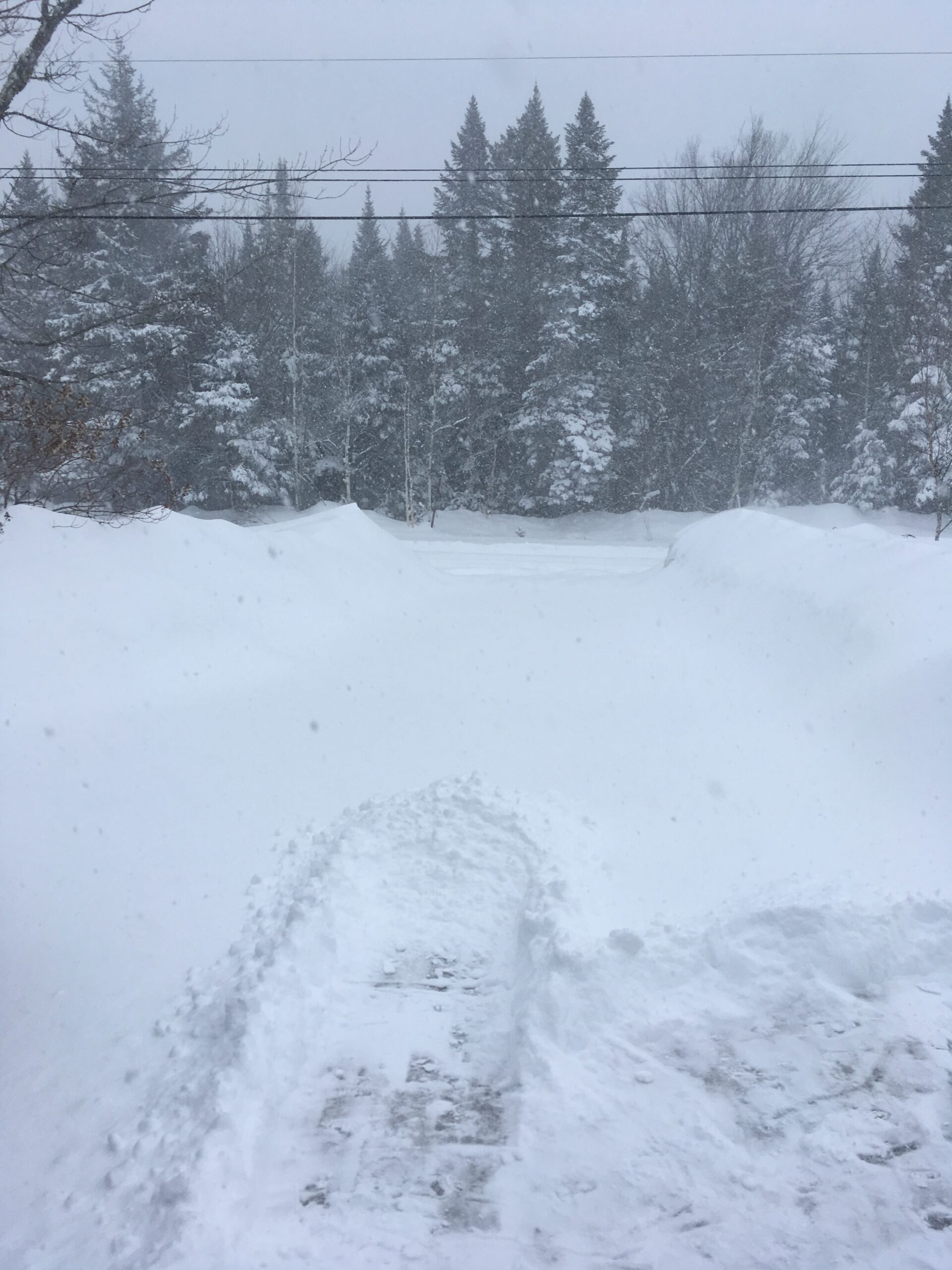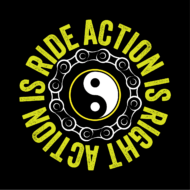
In the section of Atlantic Canada I’m parked in we average around 100 in/250cm of snowfall per year. It’s not uncommon to get 2-3 feet in a single storm, several times a winter.
A few weeks ago, we got a big dump of snow. Around 2 feet if I recall correctly. I went out to snowblow my driveway the next morning before heading to work and the snowblower wasn’t having it. It would blow snow, but the drive mechanism wouldn’t engage so it wouldn’t go anywhere. The machine weighs more than I do, so simply pushing it was not an option.
Was a time when I would have beaten the thing with a shovel and swore up and down at it – as if this action would have compelled the inanimate object to somehow change its mind and work. Instead I realized I had two options.
I could haul it back in the garage and take it apart and see what the issue was and if I could fix it. Bear in mind it was around -19ºC at this point – even in my unheated garage – and dicking around with some small mechanical parts in those temps didn’t seem too appealing.
Or I could shovel.
Either way I was going to be late for work, but just accepting that fact was half the battle. I decided on option 2.
I begrudgingly began to shovel, but as I did so I started to become more aware of things in that moment. It was a bright, sunny day – as weirdly enough, it often is after large snowstorms – it was quite still and quiet, and generally just pleasant to be outside (assuming one is properly dressed for the cold).
Once I’d accepted that I was going to be late for work anyway – and the fact that there was nothing really I could do about it – settling into work at a reasonable vs. rushed pace was actually quite satisfying. I felt good using my body to do work. It was much more meditative without the constant racket of the snowblower engine and the crisp air was untainted by exhaust.
Shovelling snow is one of those tasks where you can actually see your progress in real-time. You can observe that you’re actually getting something done and absorb the satisfaction that provides.
Sometimes, I wander the house, circling, not sure where to go or what to do. My wife will often ask me what’s up – I usually reply that I feel I have so many things I need to do, I don’t know which one to do first.
I was listening to a podcast the other day (I forget which one) and one of the people mentioned a story about Albert Einstein. Apparently, Einstein had a closet full of very similar, or indeed, the same clothes, and would often dress exactly the same every day. When someone once asked him why, he is said to have replied “to avoid Option Paralysis.” I get that. I have had that. I’ve been paralyzed by all the options. And consequently rendered non-productive at various times as a result. I don’t know if Option Paralysis is a real thing or not, but it’s real to me, and when it hits, and I can’t move forward, it really does a number on my frame of mind.
What I’ve started doing though is just pick one thing and do it. Do it completely. Do it with all my focus and finish it. Then move on to another thing. It often turns out to not really even matter which thing gets done first, because invariably what happens is when you can get one thing done – and feel good doing it – then that mojo translates into the next thing, and the next thing, and – you get the point.
In Zen Mind, Beginner’s Mind, Shunryu Suzuki wrote:
“In order not to leave any traces, when you do something, you should do it with your whole body and mind; you should be concentrated on what you do. You should do it completely, like a good bonfire. You should not be a smoky fire. You should burn yourself completely. If you do not burn yourself completely, a trace of yourself will be left in what you do. You will have something remaining which is not completely burned out. Zen activity is activity which is completely burned out, with nothing remaining but ashes. This is the goal of our practice. That is what Dogen meant when he said, “Ashes do not come back to firewood.” Ash is ash. Ash should be completely ash. The firewood should be firewood. When this kind of activity takes place, one activity covers everything.”
That day, shovelling snow became such a thing. And the next storm, when I went out to shovel three different times while it was still going (it’s easier to shovel a small amount of snow three times, vs. a large amount once). I dedicated myself to the one task, only that task. I wasn’t trying to do several other things at once – or worrying about what I was going to do when I was done. That would be then. This is now. “Burn yourself completely.” This doesn’t mean exhaust yourself into fatigue – I take it to mean put all your attention in that moment into what you are doing, whatever it is.
“But you’re shovelling freaking snow,” you say. “How satisfying or interesting can that be?” Well, quite, actually. David Cain over at raptitude.com mentioned this awhile back in his post “How to Enjoy Life” wherein he talked about finding happiness even in things society tells us we probably shouldn’t enjoy (or just flat out don’t):
“To the mind that’s looking for it, there is pleasure to be taken in the warmth of dishwater, the fresh air on a walk to the store, and the relaxing sensation of sitting in a chair, even if that chair is in the waiting room at the oil change place. We don’t do these things—or most things—for reasons of pleasure, but pleasure is available in most things.”
“The real transformative effect isn’t in the subtle pleasures you can find when you look (although they’re pretty great). It’s in the completely different way we’re aiming our minds in ordinary moments. We’re looking into our experience, not outwards from it, for interest and pleasure.”
It’s easy to give lip-service to this idea in the form of, “yeah well anything can be at least moderately enjoyable with the right perspective,” but how often do we actually employ those changes of perspective?
I still haven’t fixed my snowblower. At some point I will, but I think moving forward I will be more selective about using it (and saving gas money and getting more exercise in the meantime.)

